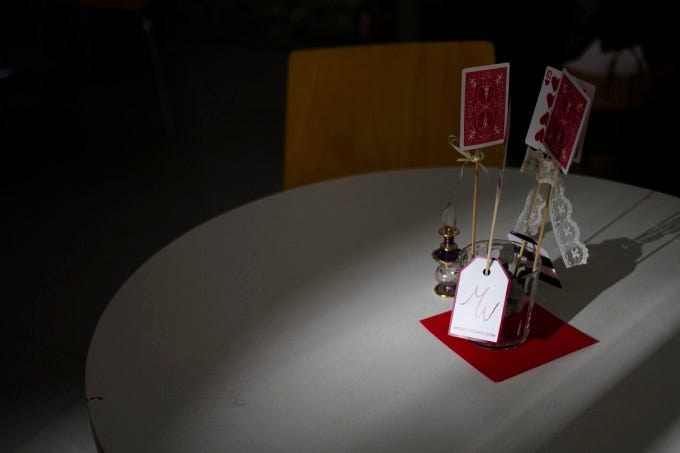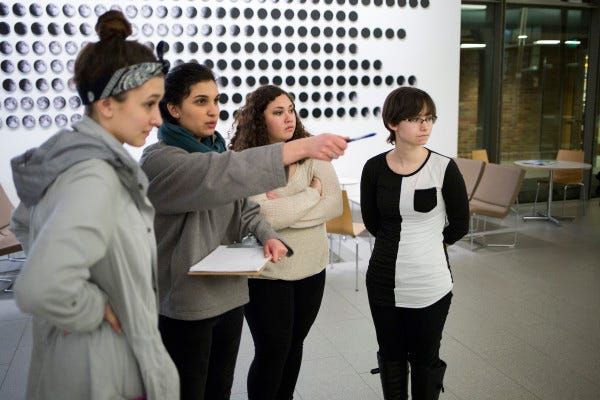A Place of Purpose
Middle Women aims to create safe spaces on campus
STORY BY ELANA PIDGEON | PHOTOS BY NICK DANIELSON
Rebecca Rivero was sitting alone in a dining hall on campus when a student came up and sat down across from her at the table. It was three weeks after Rivero launched a blog called Middle Women, where she was outspoken about her own struggles with depression, anxiety and disordered eating. The student, a woman living in the same residence hall as Rivero, asked her, “Why are you being so loud and open about all of this?”
Rivero explained that she didn’t want to be quiet anymore — she wanted to talk about her experiences and heal from them.
The woman listened and then said, surprised, “Oh, I didn’t know we were allowed to talk about those things.”

Rivero, a Western alumna, founded Middle Women, as a Bellingham based organization and then a campus club, around the idea that women should have a safe space to connect with each other free of judgment.
Adrienne D’Alo, Middle Women’s director of research and education, joined because she was frustrated with the way the media’s perceptions of body image were having such a drastic impact on women’s self-esteem. But it’s difficult to pin down what a safe, inclusive space on campus looks like.
“To us, I think the biggest factor of creating a safe space is one without judgment. I think a lot of that has to do with perspectives, realizing each person has had a unique experience in their life and everyone has different elements they want to bring to the table,” D’Alo says.
Rivero originally wanted to start a blog with photos and create a space where people could question what it means to be an individual. As the ideas grew into Middle Women, the team identified two main problems in society: low self-esteem and negative body image. The Middle Women website was launched in September 2012 and the Western club started in spring 2013.
Rivero says she was inspired to start Middle Women after living with disordered eating, depression, self-harm, thoughts of suicide and an early diagnosis of bipolar disorder.
She’s not alone. Every year about 18 percent of American adults will be affected by an anxiety disorder, and almost 7 percent will experience major depressive disorder, according to the National Institute of Mental Health.

“I currently feel right in the middle of my recovery process even though I’ve been going through it for years, it is hard every single day,” Rivero says. “When I have a good day, I know that I worked really, really hard for that day and that the next is probably going to be extra hard, I would love to hear that our audience, our community, feels that we’ve been able to create a positive change in their life and recovery process.”
Catherine Vader, Wellness Outreach Center coordinator for Western’s Prevention and Wellness Services, says creating a safe space is crucial when working with students. Anything they do at Prevention and Wellness Services has to meet the “PIE” criteria: it has to be positive, inclusive and empowering.
“To me a safe space is where students feel the freedom to be who they are, to bring their whole self into the room and function from that level of strength and honesty,” Vader says. “If students need help they are much more likely to ask for help if they feel safe — respected, listened to and honored.”
Rivero says Middle Women is always trying to create a space for healing, peace and purpose, but that she’s not an expert in creating a safe space.
“All I know is the emotional reactions that I get from any given situation and I try and create a space that is comfortable, that people want to come back to, and where conversation can flow,” Rivero says. “Collaboration is key and if I can create opportunities for other people, then I have been successful.”
